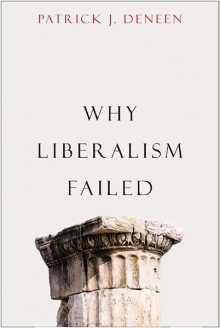 Notre Dame political scientist Patrick J. Deneen’s new book, “Why Liberalism Failed,” is a challenge to those who want to revive the liberal democratic order, David Brooks writes for the New York Times:
Notre Dame political scientist Patrick J. Deneen’s new book, “Why Liberalism Failed,” is a challenge to those who want to revive the liberal democratic order, David Brooks writes for the New York Times:
Deneen argues that liberal democracy has betrayed its promises. It was supposed to foster equality, but it has led to great inequality and a new aristocracy. It was supposed to give average people control over government, but average people feel alienated from government. It was supposed to foster liberty, but it creates a degraded popular culture in which consumers become slave to their appetites….
Deneen’s book is valuable because it focuses on today’s central issue. The important debates now are not about policy. They are about the basic values and structures of our social order. Nonetheless, he is wrong. Liberal democracy has had a pretty good run for 300 years. If the problem were really in the roots, wouldn’t it have shown up before now?
“The difficulties stem not from anything inherent in liberalism but from the fact that we have neglected the moral order and the vision of human dignity embedded within liberalism itself,” Brooks adds. “As anybody who’s read John Stuart Mill, Walt Whitman, Abraham Lincoln, Vaclav Havel, [former National Endowment for Democracy board member] Michael Novak and Meir Soloveichik knows, liberal democracy contains a rich and soul-filling version of human flourishing and solidarity, which Deneen airbrushes from history.”
In the American Interest, Stanford University’s Larry Diamond highlights reasons to worry that 2018 will be a year of living very dangerously for the United States, and for its democracy.







